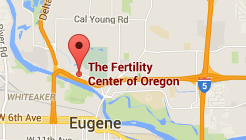
Fertility services for gay or single men include: in vitro fertilization, access to our pool of anonymous egg donors; connections with local and national surrogacy agencies; semen analysis and sperm freezing; preimplantation genetic screening of embryos; embryo cryopreservation; embryo donation; therapeutic donor insemination of traditional surrogates; and compliance with all Food and Drug Administration regulations that apply to third party reproduction.
Who can be an egg donor?
Anonymous egg donors are healthy women in their twenties who are paid to undergo ovarian stimulation and retrieval of eggs. The Fertility Center of Oregon maintains a pool of anonymous egg donors available to our patients. Directed egg donors are women who are known to the intended parents. She could be a friend or a blood relative. She may do this service for free, or the intended parents may compensate her. There are also egg donor agencies in the United States where an egg donor can be sought. This adds expense (agency fees, travel expenses) but provides a more significant number of donors to choose from.
What is a gestational surrogate?
A gestational surrogate is a woman who agrees to have an embryo or embryos transferred to her uterus. She is not biologically related to the baby since her eggs were not used. A detailed legal contract is required between the surrogate and the intended parents, and a judge is usually needed to establish the parentage of the baby after birth.
What is a traditional surrogate?
A traditional surrogate is a woman who agrees to be inseminated around the time she is ovulating. Half of the baby’s genetics come from her and the other half from the male whose sperm was used for the insemination. There are more concerns about whether the traditional surrogate might have trouble turning the baby over to the intended parents than we have with gestational surrogates. Many fertility specialists will not work with or promote traditional surrogates because of these concerns. There must be a detailed legal contract and usually, a judge’s involvement in listing the intended parents, and not the surrogate, as the parents on the baby’s birth certificate.
If I live out of town, how long would I (or my partner) need to be in town at the clinic?
Generally, we evaluate sperm quality and perform the screening and testing mandated by the FDA before the actual IVF or insemination cycle. We can freeze multiple sperm specimens over a period of a few days to a week for use in the future. A six-month quarantine of sperm is recommended by the FDA to prevent the transmission of infectious disease to the surrogate.
What are the first steps I need to take?
Call and talk to the nurse coordinator about your plans. She will list the next steps you need to take. A telephone consultation with Dr. Austin may be the next step if you don’t live in Oregon.

